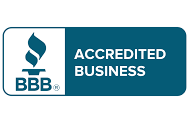The actual loan amount, term, and Annual Percentage Rate of the loan may vary by state. Rates may vary based on individual credit worthiness and other factors.
Responsible Borrowing: California Title Loans Explained
Considering a title loan in California? Arm yourself with knowledge! Here are 5 important questions to ask before you commit to ensure you make the right financial decision.
6/3/20256 min read


Table of contents:
Bad Credit? No Problem! Find the Best Emergency Loans for Bad Credit Near You
Financial emergencies can happen at any time, and if you have bad credit, finding a quick loan can feel impossible. Fortunately, emergency loans for bad credit are available to help you cover urgent expenses without long approval processes. Whether you're facing unexpected medical bills, urgent car repairs, or rent payments that can’t wait, there are solutions available even if your credit score is less than perfect.
If you’re facing an urgent financial need, a California title loan can provide quick cash to cover expenses like medical bills, car repairs, or everyday costs.
Many lenders let you apply online, approve your loan quickly, and deliver cash within 24 hours. While title loans are easy to get, even if you have poor credit, they come with high interest rates and risks you must understand before borrowing.
To make a smart borrowing decision, ask the right questions. This guide highlights five essential tips to help you fully understand California title loans and protect yourself from costly mistakes.
Call (888) 812-1076 or email contact@cashloansexperts.com to speak with a loan expert who can guide you through your options.
Why You Should Ask Questions Before Getting a California Title Loan
Lenders market title loans in California as quick, easy money. You can apply online, get approved rapidly, and receive your cash within 24 hours. This speed appeals to many people facing emergency expenses.
However, California title loans often carry high Annual Percentage Rates (APRs), prepayment penalties, and hidden fees that increase your cost. Many borrowers find themselves trapped in cycles of debt because they didn’t fully understand these terms upfront.
By asking the right questions, you can:
Understand the total cost of the loan
Identify terms that could harm your finances
Protect your vehicle and credit score
Compare title loans to safer loan options
Taking just a few extra minutes to research and question lenders can save you significant stress and money down the road.
1. What Are the Total Costs and Hidden Fees of California Title Loans?
Many borrowers underestimate the full cost of a title loan in California. Title loans commonly have APRs exceeding 100%, which is much higher than traditional personal loans or credit cards.
When you ask about fees, clarify:
APR (Annual Percentage Rate): This includes interest and fees expressed as a yearly rate. High APRs mean you pay much more over time.
Processing and Origination Fees: These upfront fees add to your loan balance. For example, a $100 origination fee on a $1,000 loan increases what you owe immediately.
Late Payment Fees: If you miss a payment, late fees add up quickly. Some lenders charge $25–$50 per late payment, increasing your debt.
Prepayment Penalties: Surprisingly, some lenders penalize you if you repay early, reducing your ability to save on interest.
Other Hidden Fees: Ask about costs for paperwork, vehicle inspections, or title transfers that might appear on your bill later.
For example, a borrower who takes a $1,500 title loan with a 120% APR might end up paying over $3,000 if the loan lasts a full year. If they miss payments and face late fees, that number climbs even higher.
Understanding all these fees helps you calculate your total repayment cost and avoid surprises that could lead to default.
2. How Much Equity Do You Need in Your Vehicle for a California Title Loan?
Your vehicle’s equity is the difference between its market value and any outstanding loan balance. Lenders use your equity to decide how much they’ll lend.
For example, if your car is worth $12,000 and you owe $5,000, your equity is $7,000. Most lenders offer between 25% and 50% of your equity as a loan.
Ask lenders:
How they determine your vehicle’s value. Some rely on Kelley Blue Book, while others use internal appraisals.
Whether you can keep driving your car during the loan term. Most lenders in California allow this, but always confirm.
What happens to your car title. The lender will hold your title as collateral until you fully repay the loan.
What insurance coverage they require. Some lenders require full coverage insurance during the loan, increasing your monthly costs.
Remember, your car isn’t just collateral—it’s often your main transportation for work, school, and daily life. Losing access to it can cause serious disruptions.
3. What Happens If You Can’t Repay Your California Title Loan?
Unfortunately, many borrowers struggle to repay title loans on time. It’s critical to understand what lenders do if you miss payments.
Ask:
How long the grace period is before late fees or penalties apply. Some lenders offer only a few days.
When repossession begins. Some lenders repossess vehicles quickly after missed payments, while others wait longer.
Whether you can extend or refinance the loan if you’re short on cash. This can provide breathing room but may increase total costs.
Whether your missed payments affect your credit score. Many title lenders don’t report for approval but may report defaults, hurting your credit.
Repossession is the biggest risk with title loans. Losing your vehicle not only means losing transportation but also hurts your credit and can leave you with additional fees.
4. Is Your California Title Loan Lender Licensed and Transparent?
California requires title loan lenders to be licensed by the Department of Financial Protection and Innovation (DFPI). Licensed lenders follow consumer protection laws designed to protect borrowers from predatory lending.
Verify:
The lender’s California license number before you apply. You can check online on the DFPI website.
That the lender provides all terms in writing—never rely on verbal promises alone.
That the lender explains the loan agreement clearly, including your rights and responsibilities.
Online reviews and complaints to ensure the lender has a good reputation.
Working with licensed, transparent lenders reduces the chance you’ll fall victim to scams or unfair loan terms.
5. Are There Safer Alternatives to California Title Loans?
While title loans may seem like the fastest option, safer, more affordable alternatives exist:
Personal loans from banks or credit unions often offer lower interest rates and longer repayment terms. Some specialize in loans for borrowers with poor credit.
Installment loans provide smaller payments spread out over months or years, reducing financial pressure.
Credit card cash advances might have lower APRs if you have a credit card with a reasonable interest rate.
Payroll advances from your employer can provide emergency cash without high interest.
Many local charities, churches, and nonprofits offer emergency financial assistance programs that don’t require collateral.
Borrowing from trusted family or friends can be a low-cost option if you set clear terms.
Exploring these alternatives can save you money, reduce risk, and help you avoid losing your vehicle.


Responsible Borrowing Tips for California Title Loans
Only borrow what you truly need, not the maximum amount offered.
Make sure your monthly payment fits comfortably in your budget without cutting essentials.
Read the loan agreement carefully and ask questions about anything unclear.
Don’t sign under pressure. Take time to compare offers.
Understand the application process, including income proof and pre-approval steps.
Check if the lender reports to credit bureaus, as this may affect your credit score.
Following these tips helps you maintain control over your finances and avoid loan traps.
Frequently Asked Questions (FAQ)
Q1: What is the typical APR for California title loans?
A: California title loans often have APRs above 100%, sometimes reaching 200% or more. This means you pay double or triple the borrowed amount if you keep the loan for a year.
Q2: Can I keep driving my car during the loan?
A: Most California lenders allow you to keep using your car while repaying the loan, but confirm this before borrowing.
Q3: What happens if I miss a payment?
A: Lenders may charge late fees, report to credit bureaus, and repossess your vehicle if payments remain unpaid for a certain period.
Q4: How can I check if my lender is licensed?
A: Visit the California DFPI website and enter the lender’s name or license number to verify their status.
Q5: Are title loans the best option for emergency cash?
A: Title loans are fast but risky and expensive. Consider safer alternatives like personal loans or assistance programs first.
Final Thoughts on California Title Loans
A California title loan can help you cover short-term emergencies, but should never be your first or only borrowing choice. Asking the right questions, understanding loan terms, and exploring safer alternatives empower you to make a responsible financial decision.
Your car is a valuable asset—don’t risk losing it unless you are confident you can repay the loan on time. Always prioritize your long-term financial health over quick fixes.
📞 Still have questions? We’re here to help.
Call (888) 812-1076 or email contact@cashloansexperts.com to speak with a trusted loan expert.
Make your next loan decision your smartest yet.
Call us for Quick Qualification
(888) 812-1076!
DISCLOSURES TO CASH LOANS EXPERTS VEHICLE SECURED TITLE LOANS
¹ Upon completion of the call, conditional approval may be given pending the review of documentation.
² Loan approval is subject to meeting credit criteria standards, which may include providing acceptable property as collateral and demonstrating ability to repay the loan.
³ Funding time may vary depending on the time of final approval following the reception and review of all required documents and signing. Same day funding is subject to final approval and signing completion before 3PM PT on a business day. A bank account is required as a condition and in order to obtain a Persona Loan. Loan proceeds may need to be disbursed via Automatic Clearing House (“ACH”) to the borrower’s bank account. The actual availability of funds can vary based on bank processing times, daily ACH deadlines, weekends and holidays.
⁴ Actual loan amount, term, and annual percentage rate the applicant qualifies for may vary by applicant, lender and the law requirements of those terms.
⁵ The states this site services may change without notice. This service does not constitute an offer or solicitation for consumers in all states. This service may not be available in your particular state.
Our loans can be up to $50,000 depending on certain factors.
THIS LOAN (Auto-Tile or Personal Loan) IS NOT INTENDED TO MEET LONG-TERM FINANCIAL NEEDS. Loan proceeds are intended primarily for personal, family, and household purposes. Lenders recommend and encourage consumers to pay early, often and more in order to avoid additional finance charges.
Loan approval is subject to meeting the lender’s credit criteria, which may include providing acceptable property as collateral. Applicant must demonstrate the ability to repay the loan. Loan proceeds are intended primarily for personal, family and household purposes. Minimum loan amounts vary by state.
Loans with an Annual Interest Rate of 36% are limited to loan amounts between $2,500 to $9,999.00, while supplies last.
Cash Loans Experts is licensed or registered as a finance lender as required by applicable state law and does not offer or service student loans. Cash Loans Experts does not provide financial advice and does not guarantee the accuracy of information as it is subject to change without notice about its current product guidelines.
Cash Loans Experts may act as the broker for the loan and may not be the direct lender or servicer of your loan. All loan applications are subject to meeting underwriting and credit criteria, which includes providing acceptable property as collateral. A bank account is required as a condition and in order to obtain a loan. Inquiring for a loan and its minimum requirements does not impact your credit score, however, completing a full application may affect your credit score.
Cash Loans Experts. The terms and conditions set forth within the “General Terms and Conditions, up to and including but limited to the “Wireless Policy” applies to all Cash Loans Experts owned or operated websites in the aforementioned.
Important Information Concerning Procedures for Opening a New Account
To help the government fight the funding of terrorism and money laundering activities, federal law requires all financial institutions to obtain, verify, and record information that identifies each person who opens an account. What this means for you: When you open an account, we will ask for your name, address, date of birth, and other information that will allow us to identify you. We may also ask to see your driver’s license or other identifying documents. We will make a copy of these identifying documents for our records
If you are using a screen-reader and are having problems using this website, please give us a call at (888) 812-1076 for immediate assistance.

Are you ready to get a title loan? Let's talk
235 W 12th St, Merced, CA. 95341
Contact:
(909) 784 - 0660
contact@cashloansexperts.com


Attention Hours:
Mon-Fri: 7 am – 6 pm
Saturdays 8 am – 4 pm
Sundays 9 am – 4 pm
691 S Palm Canyon Dr, Suite C Palm Springs, CA 92264
© 2024 All Rights Reserved by Cash Loans Experts
4030 Tyler St. Suite B Riverside, CA. 92503
